As the semester, and this academic year, comes to a close, I’ve been working my way through my inbox looking for loose ends. What a surprise to find this great piece from our outgoing, graduating intern Ashley Alfirevic on internships and finding work after graduation. Our original plan was to do a whole series about this topic, which is why we held this post back when it was originally written.
~from English Department Communications Intern Ashley Alfirevic
As English majors, many of us are subject to the faux impression that there’s a crisis among our graduates, that after leaving the wonderful world of CSU there will not be enough job opportunities for those of us who chose a major built on our beloved books. The reality is that many companies are searching for applicants with the writing ability, the critical thinking, the creativity, and the interpersonal skills we’ve developed through our courses in creative writing, literature, languages, and education.
CSU has the advisors, career experts, and student experience to prove it. This article may be comprehensive, but it is just a brief sampling of the resources available to help attain internships now and jobs after graduation.
First, let’s take a look at the job statistics for past graduates. CSU Institutional Research and the Career Center put together a PowerPoint recording the “First Destination, Satisfaction, and Success” from a sampling of 2013-2014 undergraduates.

Over 60% of undergraduates found jobs after graduation. Among that percentage, 85% secured an offer or plans before graduation. Only 20% were still seeking employment and the other 20% had gone on to continue their education.
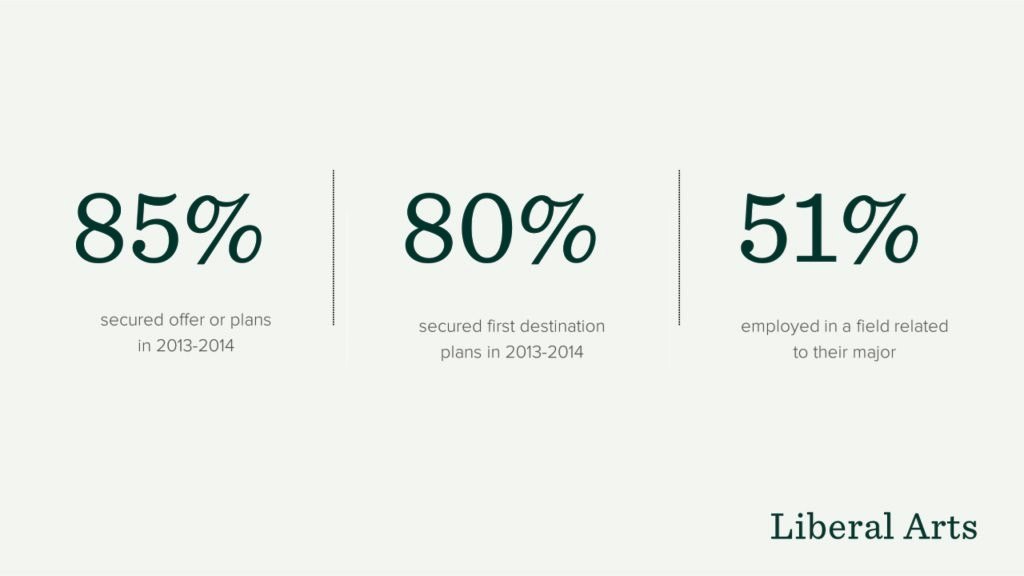
Plus, the average starting salary from those first time jobs isn’t too shabby either.
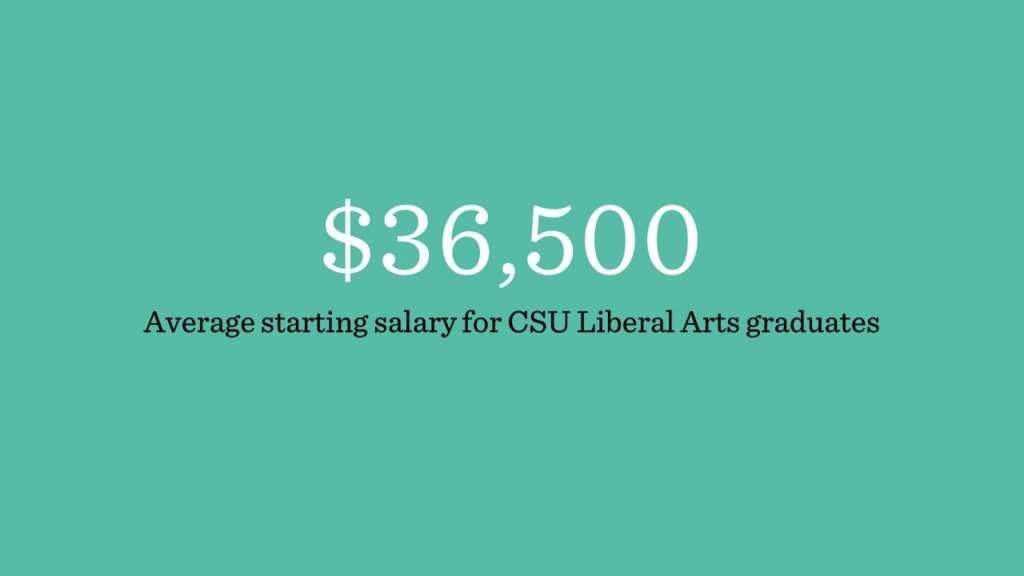
Now, what can you do to make sure you’re among that 60% of the employed Liberal Arts majors? What should you do to make sure you’re in the 85% that has plans set before you put on your cap and gown? Taking the right pre-emptive steps with the available CSU resources can increase your ability to find employment after graduation. Four important factors are maintaining a GPA of greater than 3.0, completing internships, having on campus employment, and making use of Career Services.
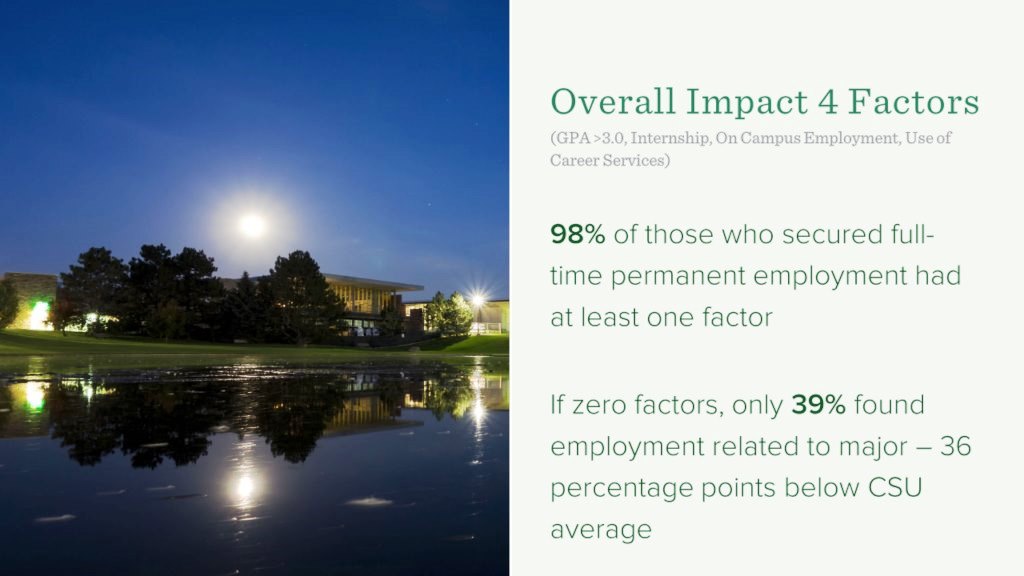
But out of all of those four factors, internships are immensely valuable. They allow you to gain experience, beef up your resume, and figure out what you want to do in the working world. Campus-wide, internships gave students a huge boost in finding employment, especially employment relevant to their majors.
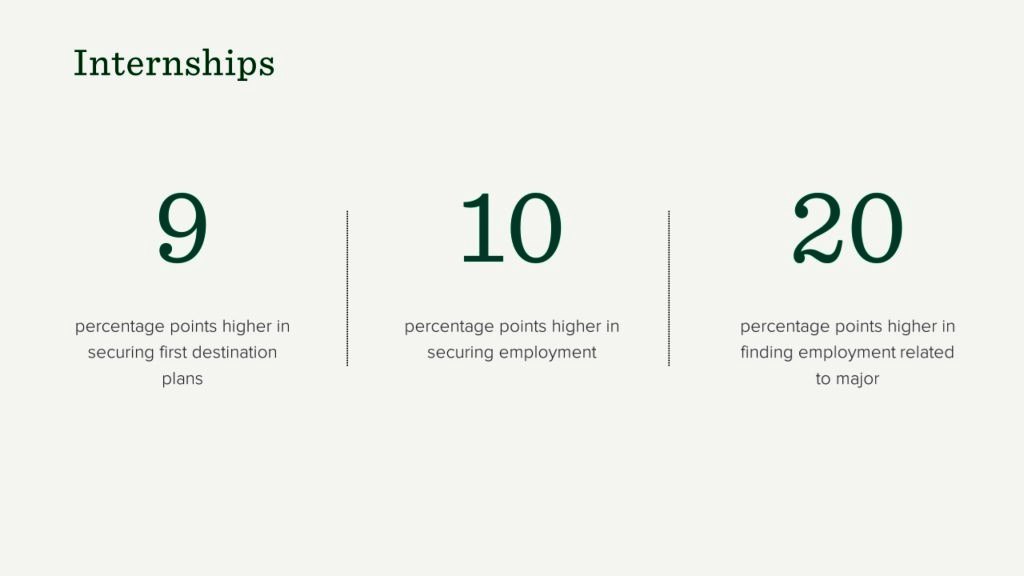
The CSU English Department conducted an Internship panel earlier this academic year featuring four current students (including yours truly) who obtained internships in their field of study. With internships paid or unpaid, spanning from CSU to NYC, whether facilitating workshops or editing commercials, we had a wide range of experience to offer. If you didn’t have a chance to make the panel, here’s the best advice we had to offer.
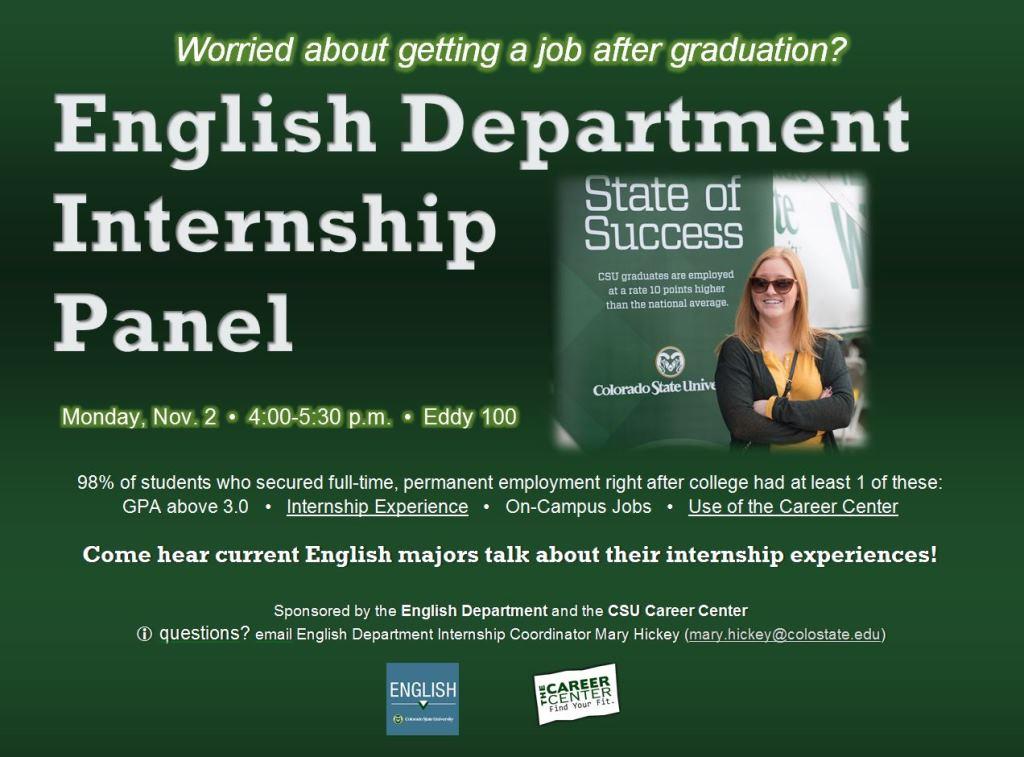
Taylor Heussner – Greyrock Review, NBC Universal, 303 Magazine, F and W Media
Breanne Work – Writing Center, Greyrock Review
Sarah Rossi – Community Literacy Center (CLC)
Ashley Alfirevic – Prime Publishing, Greyrock Review, Dublin Globe, English Department Communications Intern
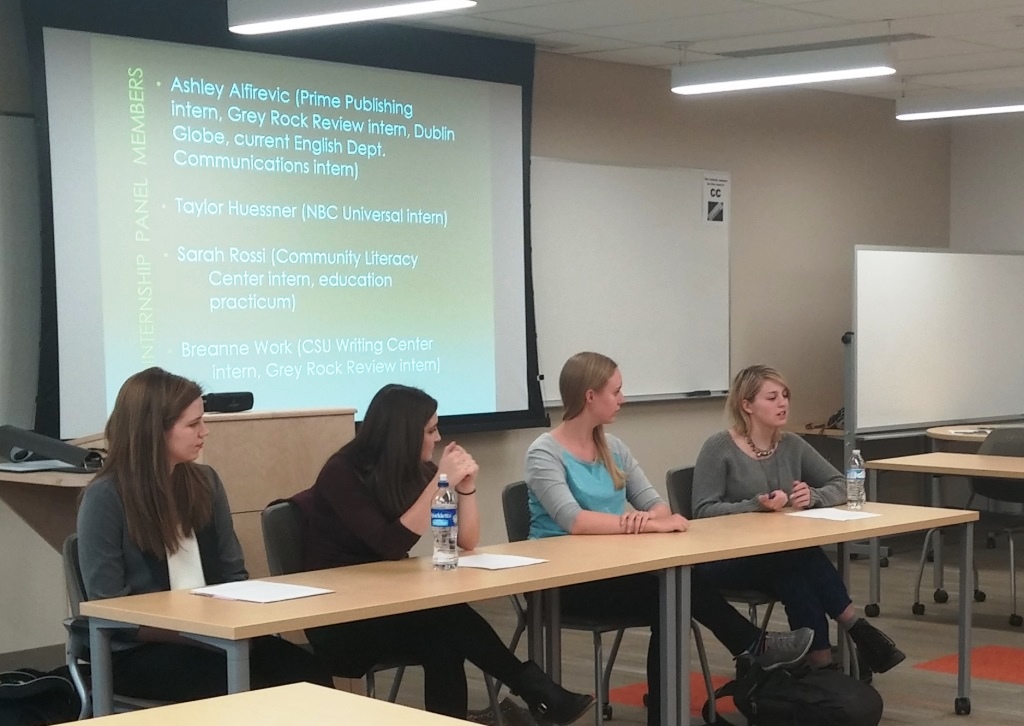
What was your internship search and application process like? That is, how did you find the internship and what was the application process like?
Taylor highly recommended LinkedIn as a great networking tool. Though she knew of the internship through a family friend, networking was key. She went through two very intensive Skype interviews to get the job, but being informed about the network helped her through quizzes and tests included in her application process.
Breanne heard about her internships through Mary Hickey’s office and the English Department Newsletter. She stressed that being aware and glancing through those emails is important. She could have missed the opportunity by deleting it on accident.
Sarah heard about the internship from fellow classmates and her professor. Cultivating connections with the professionals around you is crucial to finding out about good opportunities.
I used online tools and the Education Abroad office for my internships outside of Fort Collins, but my two other internships came through Mary’s offices as well. Scheduling a brief appointment can help with give the resources and information you’re looking for.
What were/are some of the most important takeaways from your internship and skills you gained?
Taylor gained a lot of computer skills working with Photoshop and video editing. Media skills make you marketable in today’s high tech world.
Breanne talked about her enjoyment working with different patrons of the Writing Center. Interpersonal skills are always something to put on your resume.
Sarah works with at-risk youth for the SpeakOut! program, and emphasized that empathy, compassion, and understanding are hugely important when working in groups.
I found that learning a new skill – like search engine optimization – makes you especially appealing to employers, especially when you’re creating web content.
What did you find to be challenging, unexpected, and/or surprising?
Taylor initially felt daunted by all of the other interns, who had tons of experience. Since then, she’s worked even harder on her credentials to be competitive on the East Coast.
Breanne said it can be disheartening to have a bad editing session with a patron, as people won’t always listen. You have to be prepared for the good days and the bad days.
Sarah talked about always being flexible in the workplace, and to always be prepared for changes.
I found that a lot of content jobs are now tied in with social media. No matter what you specialize in, you’ll probably have to work on connecting with your social media audience.
How did your degree work prepare you for the internship?
Taylor discovered that her poetry work really helped her to be creative and bring different perspectives to the table while making commercials.
Breanne found that her editing skills were a great asset in both her internships.
Sarah’s work with lesson plans and teaching skills prepared her to facilitate workshops with youth.
I love writing for a specific audience whenever I’m creating content. Every paper I write helps me figure out how to do just that.
What advice can you offer to current English students who are considering an internship/have not yet completed one?
Taylor said there’s no downside to doing an internship. You get great experience and great skills that will make you more marketable when looking for future jobs.
Breanne said to look around the department and see what the opportunities there are. There are usually quite a lot of them!
Sarah talked about going above and beyond the job expectations. Impress your supervisors and good things will come out of it!
I talked about how there are so many new jobs emerging in our field, especially since we are moving towards an emotional age that values our skills.
For more information about internships, Mary Hickey serves as our English Department Internship Advisor. She has a wealth of resources and internship opportunities to help you figure out the best moves for your future. If you’re looking for something out of state or want to get into a specific industry, set up an appointment with the Career Center (Katie Russo specializes in Liberal Arts). You can start using the Handshake tool, which pulls internships from tons of different websites to help find the best options for you.
The English Department website has a new and improved feature to help you navigate your internship search and experience. Apply for internship credit and check out quotes from previous interns.
Start looking at your options, and get your future started!